All products featured are independently chosen by us. However, SoundGuys may receive a commission on orders placed through its retail links. See our ethics statement.
The truth about lossless audio on Bluetooth speakers. It’s pointless.
May 28, 2025
Lossless audio over USB-C is the hot new spec on portable Bluetooth speakers, but let’s be real. If you’re blasting music from a mono speaker next to a campfire or your kitchen sink while making dinner, will you really notice the difference between FLAC and a regular stream? Probably not. I’ve never met a Bluetooth speaker designed for critical listening, so here’s why lossless audio is basically a throwaway feature in this category.
Do you care about lossless audio on a Bluetooth speaker?
What is lossless audio, really?
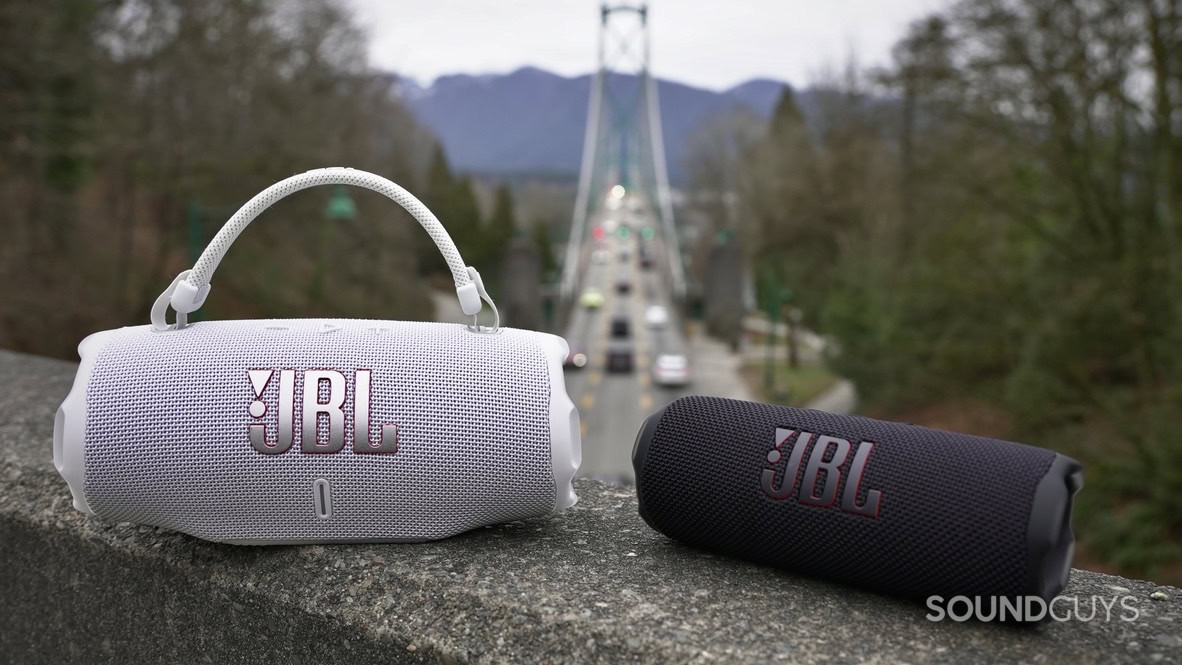
Lossless audio refers to music files that preserve 100% of the original audio data, without any compression that reduces sound quality. Services like Apple Music and Tidal both support it, offering formats like FLAC (Free Lossless Audio Codec) and ALAC (Apple Lossless Audio Codec), which are common examples. They provide better fidelity than compressed formats like MP3 or AAC, but the trade-off is larger file sizes and the need for gear that can actually translate that extra detail—hint, hint.
One of the first portable speakers to support lossless audio over USB-C was the 2024 Beats Pill. Just this year, JBL launched the highly anticipated Flip 7 and Charge 6, both heavily marketing their new lossless playback support. JBL even tossed out lines like “When music goes lossless, it gets that much better,” and positioned it as a feature for “real audio aficionados.”
Really? I didn’t know real audio aficionados preferred their Hi-Res music piped through a tiny mono speaker with a single tweeter and woofer.
Why it doesn’t matter with Bluetooth speakers
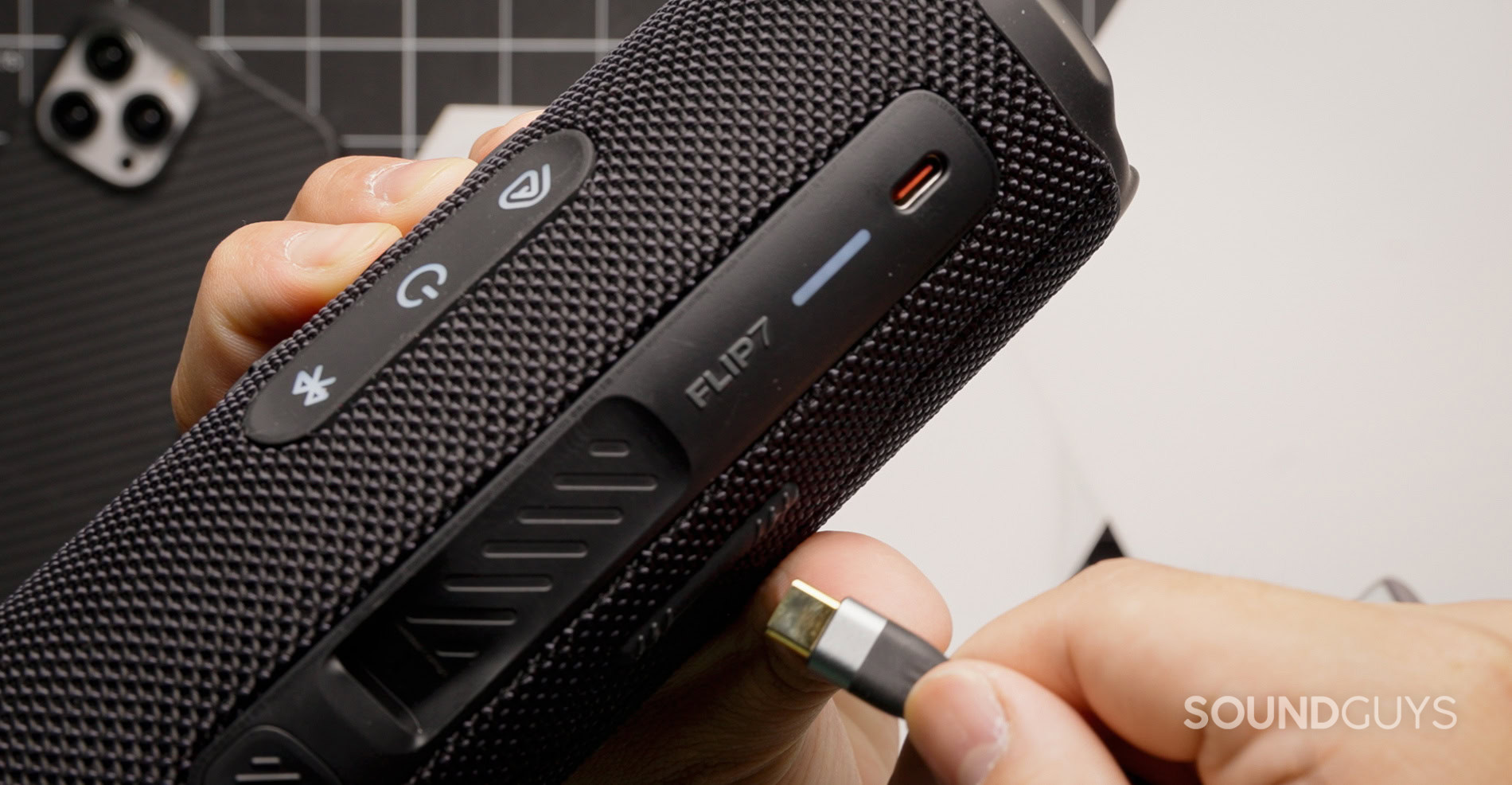
The reality is that most portable Bluetooth speakers, especially compact models like the Flip 7, Charge 6, and Beats Pill, are simply limited by design. These are mono units with no stereo separation, limited dynamic range, and a bass response that’s constrained by the size of the enclosure. Lossless audio as a feature looks impressive on the spec sheet, but through hardware like this, it doesn’t offer anything meaningful.
If high-quality audio is what you’re after, this is not the way to experience it.
As popular as the Flip 7 is, localisability and width aren’t exactly its strong points when it comes to sound. Again, being a mono speaker, instruments often sound like they’re piled on top of each other. I always try to remind listeners that these speakers are built for convenience and durability, and that comes with trade-offs. They’re not made for critical listening or revealing the subtle details you’d hear on a proper hi-fi setup. They’re great for background music at the park or by the pool, but not the kind of gear that justifies chasing lossless audio formats.
Real-world listening: It’s not just about the files
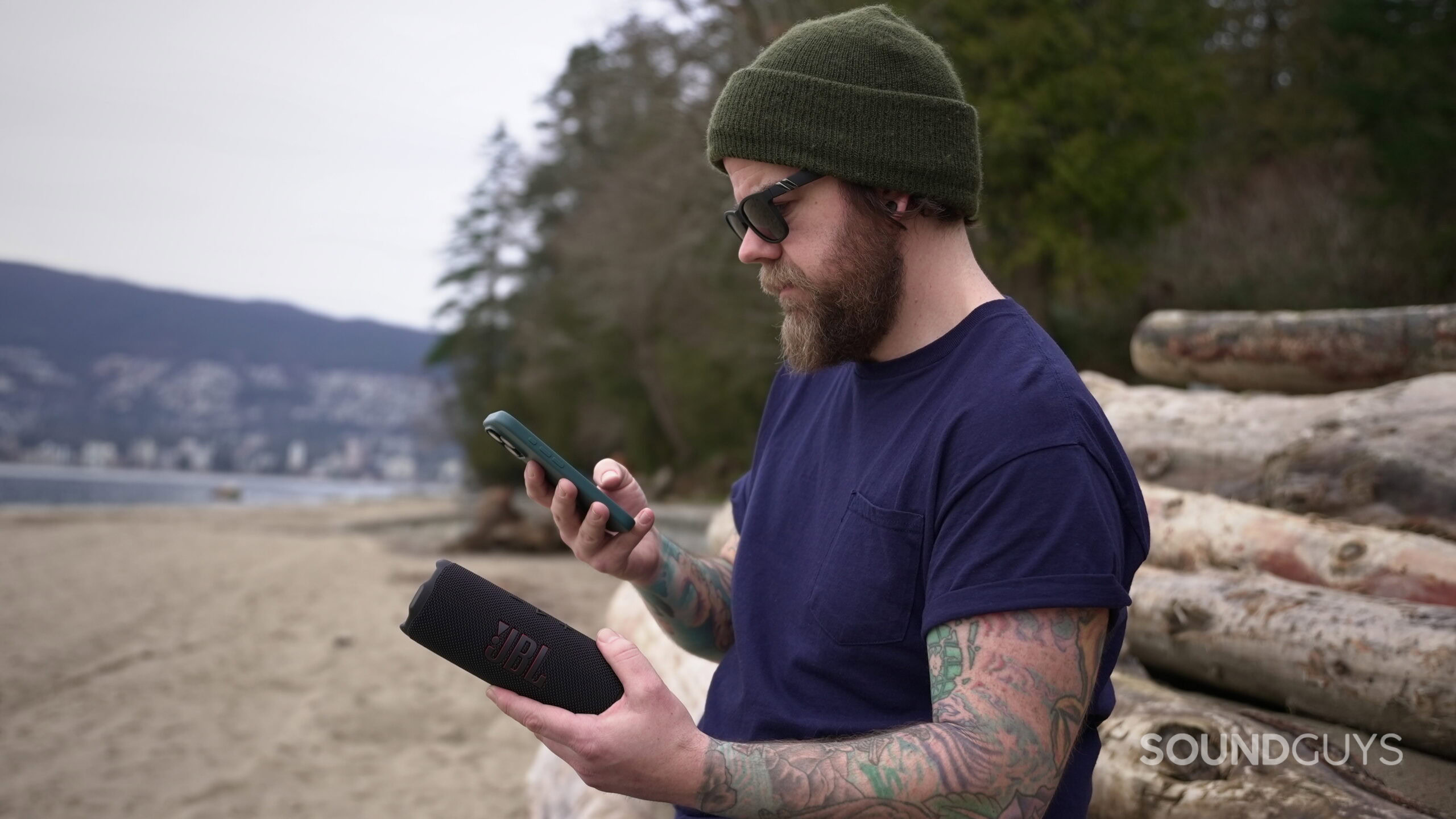
So, off to Tidal we go. I cued up some familiar reference tracks like Pink Floyd’s “Time” and Steely Dan’s “Peg,” songs etched into my memory from childhood thanks to my music-loving parents, and streamed them in lossless quality using both the Flip 7 and Charge 6 with a high-quality USB-C cable.
The result? I spent more time trying to spot differences than simply enjoying the music. Was there a touch more treble? Did that ride cymbal really sound clearer? Unplugging the USB-C cable from either JBL speaker automatically switched to Bluetooth, making A/B comparisons quick and easy. I simply could not hear any definitive difference between wired lossless audio and Bluetooth streaming over the SBC codec. Even if the wired connection did offer slightly more treble clarity, it’s something you could easily match wirelessly using the 7-band EQ in the JBL Portable app.
On top of these speakers only providing mono playback, don’t forget about the environment you’re actually listening in.
On a recent camping trip, we found an awesome spot beside a rushing river. I wasn’t streaming lossless audio, but even if I had been, the speaker was up against the sound of the water, friends talking, and all the usual camp stuff—chopping wood, setting up our tents, and just hanging out. There was no way I was going to hear every little detail in the music, but that’s not really the point with speakers like this. We were there to have a good time, and the music added to it. I wasn’t worried about vocal reverb or catching every guitar pinch harmonic—it just needed to sound good and keep the vibes going.
When does lossless audio actually matter?
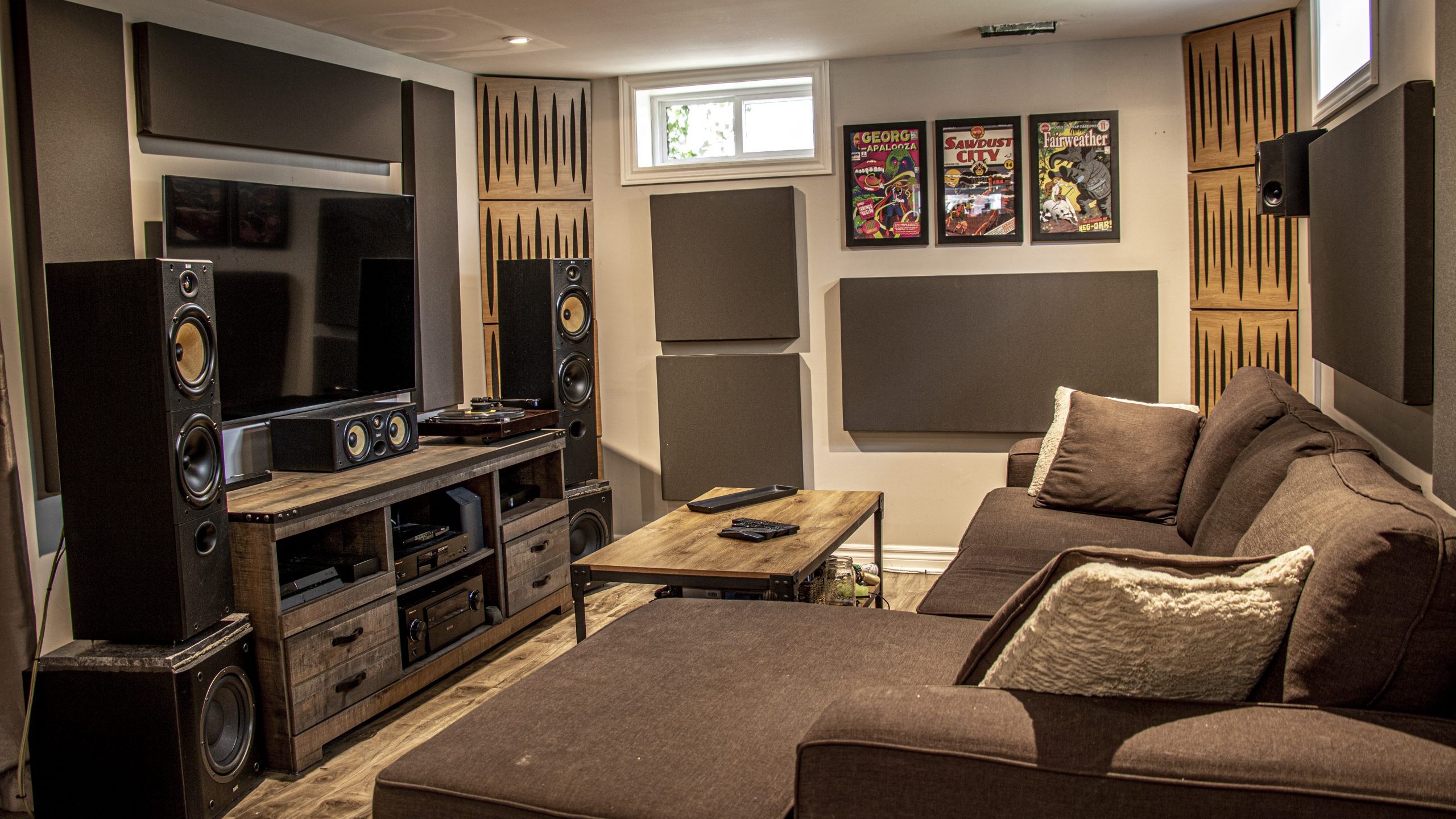
If you really want to get the most out of lossless audio, you need gear that can actually take advantage of it. That means wired headphones with a proper DAC. It can also make a difference in hi-fi systems or a powered monitor setup that offers a wide dynamic range and actual stereo separation. Home theater setups benefit too, where every nuance of a film score or surround mix adds to the experience. But Bluetooth speakers? Not so much.
Bottom line: Don’t buy a Bluetooth speaker for “lossless”
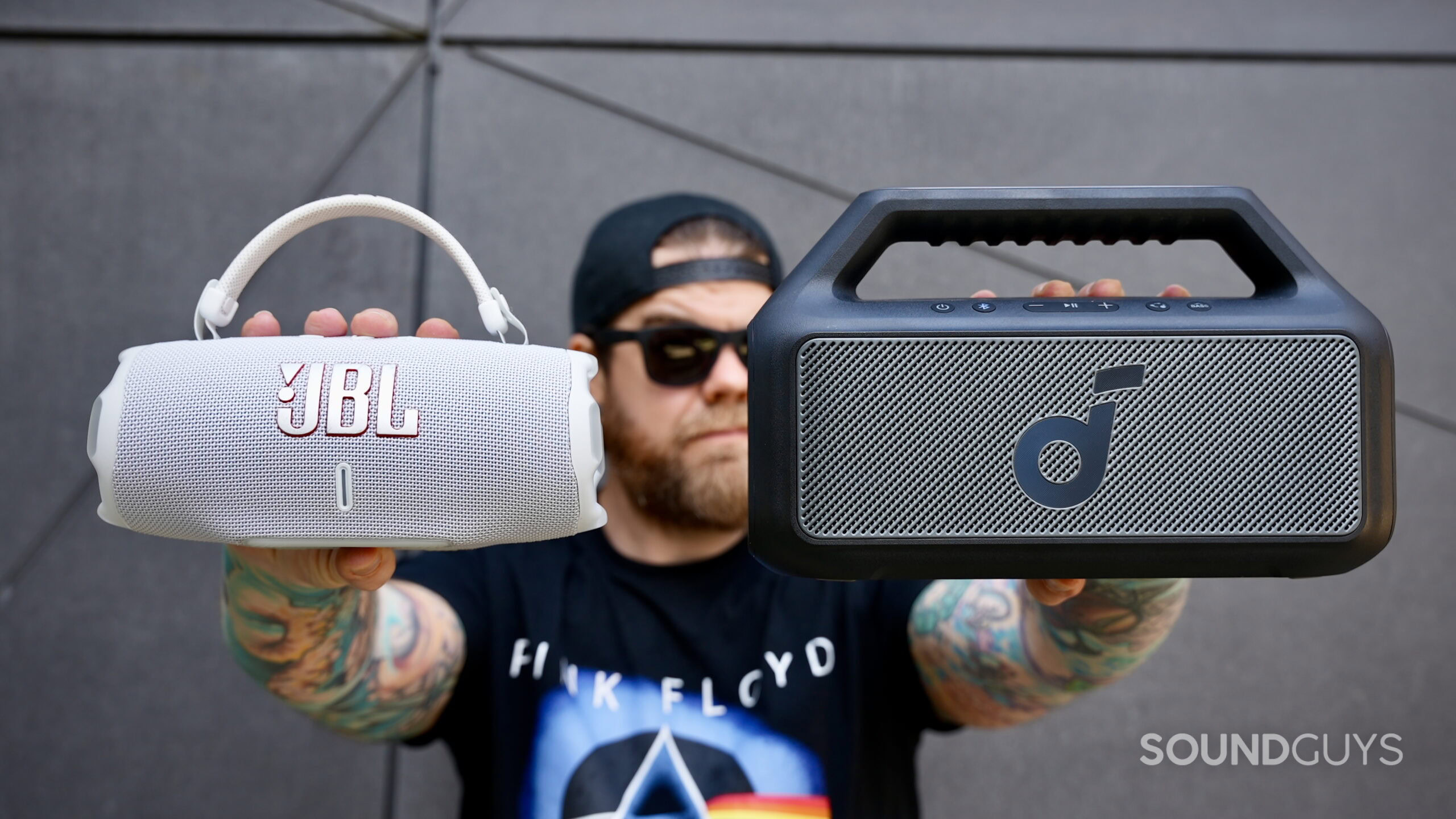
I expect we’ll see more speakers offering lossless audio over USB in the coming years, so if you’re shopping for a Bluetooth speaker, don’t get distracted by this useless feature. It’s a nice bullet point on the box, but it won’t make your playlist sound better at the beach or around a fire. Lossless audio is great, just not here.
Ultimately, focus on the features that really matter in everyday use: battery life, durability, and EQ options, which are my personal number one features. Don’t get me wrong, the Flip 7 and Charge 6 are both solid speakers, but not because they support FLAC.
Thank you for being part of our community. Read our Comment Policy before posting.